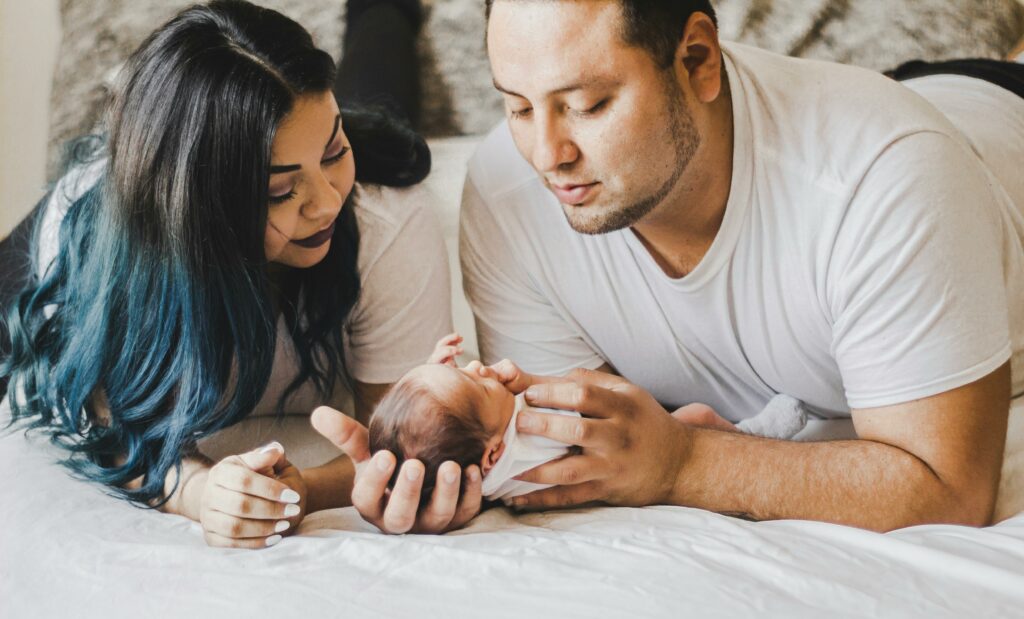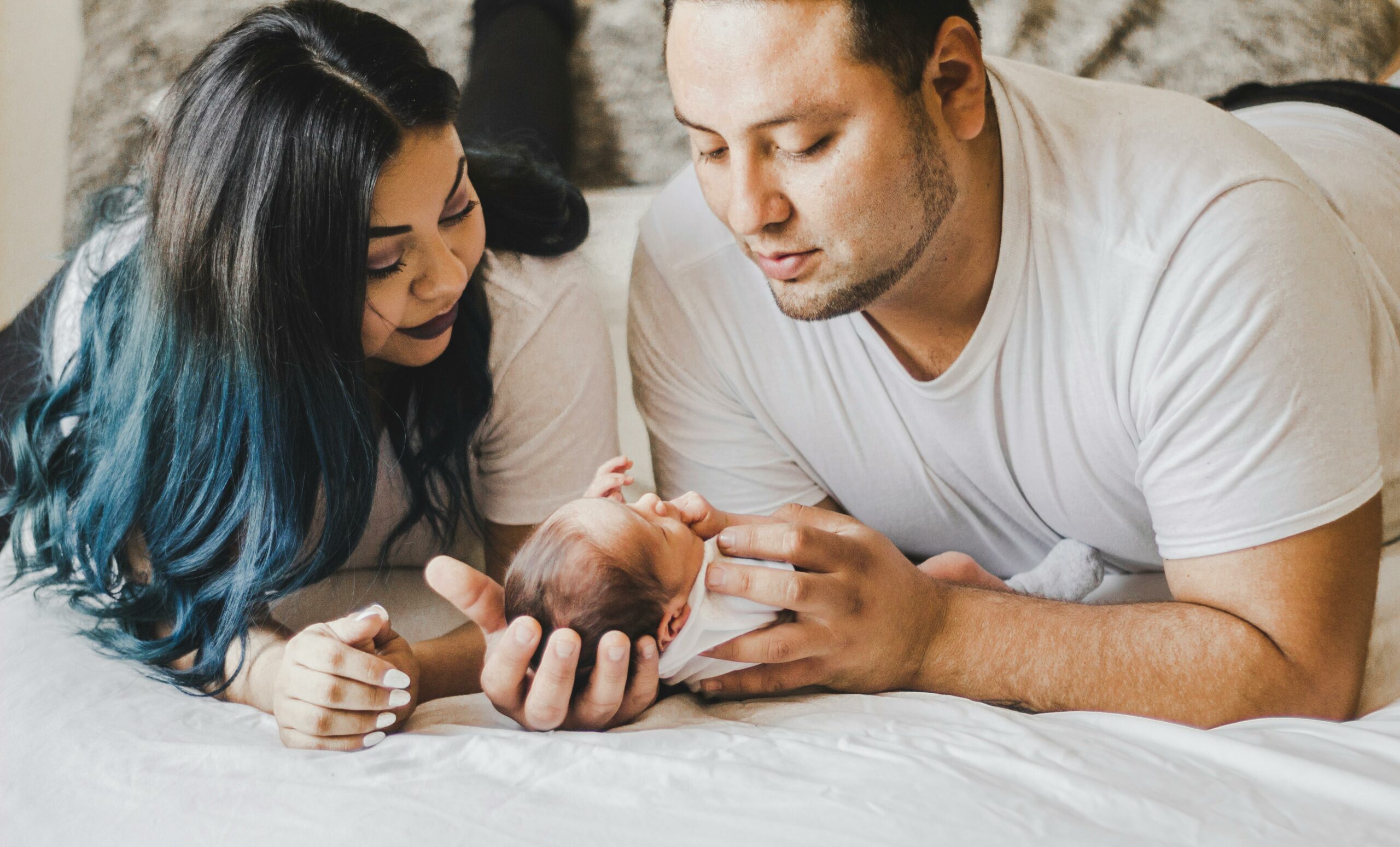When Do Babies Sleep Through the Night? A Realistic Timeline for New Moms

Every new mom dreams of the day their baby sleeps through the night, but understanding what that actually means—and when it happens—can ease the exhaustion and worry that comes with those early months of frequent wake-ups.
What “Sleeping Through the Night” Actually Means
Before you start counting down the days, it’s important to know that “sleeping through the night” for babies doesn’t mean 12 uninterrupted hours of sleep. According to pediatric sleep experts, when referring to infants, this term means sleeping at least 6-8 consecutive hours without needing a feeding or parental intervention. During this stretch, babies may briefly awaken but can self-soothe and return to sleep on their own.
This definition might not match the full night’s rest you’re hoping for, but understanding this realistic benchmark helps set appropriate expectations during your baby’s first year.
The Realistic Timeline: When Will It Happen?
Most babies don’t sleep through the night until they’re at least 3 months old or weigh 12-13 pounds. This weight and age milestone is significant because it typically means their stomachs are large enough to hold sufficient calories to sustain them through longer sleep periods.
By 6 months, about two-thirds of babies can sleep through the night on a regular basis. However, research shows that 38% of 6-month-olds still don’t sleep through the night, though that number drops to less than 28% by their first birthday. This wide variation is completely normal and reflects each baby’s unique developmental timeline.
A large study of 5,700 Finnish children found that three-month-olds woke an average of 2.2 times per night—with a range anywhere between 0 and 15 times. Eight in ten parents reported their babies woke more than five nights a week at both 3 months and 8 months. After 12 months, things changed dramatically: nearly two-thirds of 18-month-olds and three-quarters of two-year-olds no longer needed nighttime resettling.
Bottom line: The age when babies sleep through the night varies widely—anywhere between 3-12 months is typical—and that’s perfectly normal.
Age-by-Age Sleep Expectations
Newborns (0-3 Months): Frequent Waking Is Normal
Newborns sleep a lot—about 16-18 hours total in a 24-hour period—but they do so in very short stretches of only 2-4 hours at a time. During this phase, it’s virtually unheard of for babies to sleep longer than 5 hours consecutively.
Your newborn’s sleep is fragmented because of their small stomach capacity, intense metabolic needs, and an immature circadian rhythm (body clock). Feeding every 2-3 hours, day and night, is completely normal and essential for their growth and survival. Don’t expect “sleeping through the night” during this stage—biology demands frequent waking.
Newborns aren’t born with a strong circadian rhythm, which is why they don’t distinguish between day and night initially. Around 4-6 weeks, babies begin developing their internal clock and start responding more to light and darkness.
3-6 Months: Progress with Potential Setbacks
Between 3 and 6 months, an important transition begins. As melatonin production becomes more regular and cortisol rhythms stabilize, sleep blocks can stretch to 5-6 hours. Many babies at this age can offer one longer stretch, often from a late evening feed to early morning.
However, just as relief seems near, the 4-month sleep regression may strike. This temporary disruption happens because evolving neural pathways briefly upset the fragile sleep structure your baby has built. This regression is developmental and normal—it doesn’t mean you’re doing anything wrong.
At 3-6 months, babies typically take 2-3 naps during the day, and total sleep averages 12-15 hours per day. About half of parents report their baby’s longest sleep stretch is at least 5 hours during this period.
6-12 Months: Longer Stretches, But New Challenges
Most babies are now capable of sleeping 6-12 hours at night, provided development, feeding patterns, and sleep environment align. Total sleep typically ranges from 11-16 hours per day, with 2-4 hours of daytime naps.
Why the wide range? New challenges emerge: teething pain, mastering motor skills like crawling and standing, minor illnesses, or separation anxiety can all provoke unexpected night wakings. Around 6 months, babies often experience separation anxiety, which can temporarily disrupt sleep even if they were previously sleeping well.
Night feedings usually decrease during this stage, but your baby may still wake needing reassurance and comfort. The phrase “sleeping through the night” is now within reach for many families, though certainly not guaranteed for all.
Toddlers (12+ Months): More Consistency with Occasional Bumps
After 12 months, sleep usually becomes more consistent, with 11-14 hours of total sleep including one 1-2 hour nap. Most toddlers sleep 10-12 hours at night.
However, temporary regressions around 14-18 months caused by developmental milestones, separation anxiety, or routine changes are common and don’t erase previous progress. These disruptions reflect natural adaptation in your growing child.
Why Some Babies Take Longer (And That’s Okay)
Several factors influence when your baby will sleep through the night :
Small stomach size: Especially in the early months, babies physically cannot consume enough calories to last through the night without feeding.
Hunger: As long as your baby needs nighttime calories for growth, they’ll wake to eat.
Developmental milestones: Learning to roll, crawl, stand, or walk can temporarily disrupt sleep as the brain consolidates new skills.
Teething: Pain and discomfort from emerging teeth often cause night waking.
Separation anxiety: Around 6 months and again later in the first year, babies become more aware of separation from parents, leading to night waking.
Individual temperament: Sleep quality is highly variable, especially until age 2. Some babies are naturally better sleepers than others, and this variation is completely normal.
Gentle Strategies to Encourage Longer Sleep Stretches
While you can’t force your baby to sleep through the night before they’re developmentally ready, you can create conditions that support healthy sleep :
Establish a consistent bedtime routine: Dim lights, reduce noise, and create calming activities like a warm bath, feeding, and lullabies before bed.
Put baby down drowsy but awake: This helps them learn to fall asleep independently, which is crucial for self-soothing when they wake briefly at night.
Create a safe sleep environment: Always place baby on their back on a firm surface in a crib or bassinet. Keep the room temperature comfortable (16-20°C or 60-68°F).
Watch wake windows and sleepy cues: An overtired baby has more trouble falling and staying asleep.
Be patient with regressions: Sleep disruptions during growth spurts and developmental leaps are temporary.
Red Flags: When to Consult a Pediatrician
Most sleep challenges are developmentally normal, but contact your pediatrician if :
- Your baby consistently struggles to breathe during sleep or exhibits loud, labored breathing
- Your baby shows extreme fussiness or appears to be in pain
- Sleep problems are accompanied by poor weight gain or feeding difficulties
- You’re concerned about your baby’s overall development or health
- You’re experiencing severe sleep deprivation that’s affecting your mental health
The Bottom Line for Exhausted Moms
If your baby isn’t sleeping through the night yet, you’re not alone—and you’re not doing anything wrong. Most babies achieve this milestone somewhere between 3-12 months, with significant individual variation. The journey to consolidated nighttime sleep is gradual, often nonlinear, and entirely dependent on your baby’s unique developmental timeline.
Remember that “sleeping through the night” means 6-8 hours, not 12, and that even babies who achieve this milestone may temporarily regress during growth spurts, teething, or developmental leaps. With patience, consistency, and realistic expectations, both you and your baby will eventually get the rest you need.
